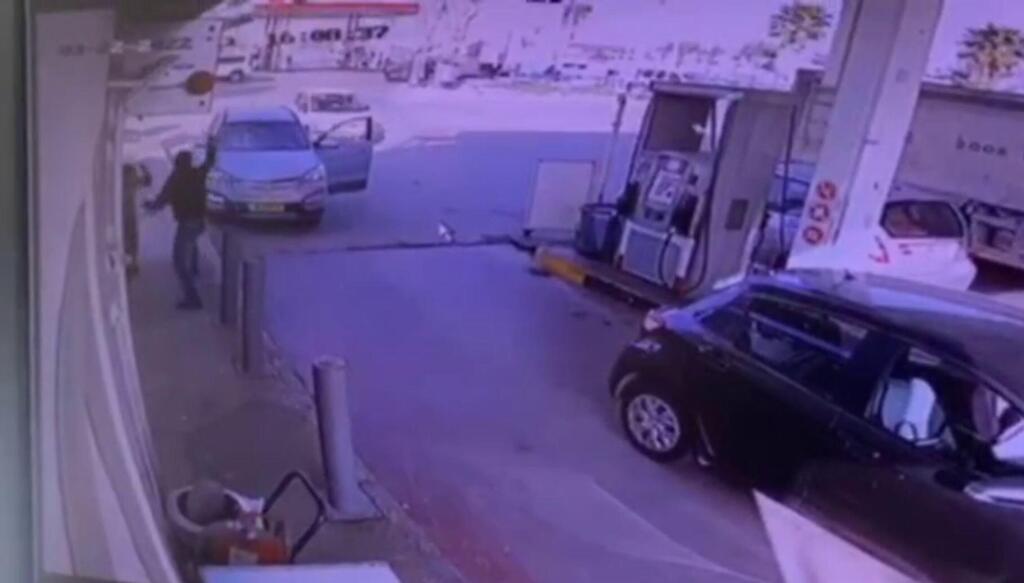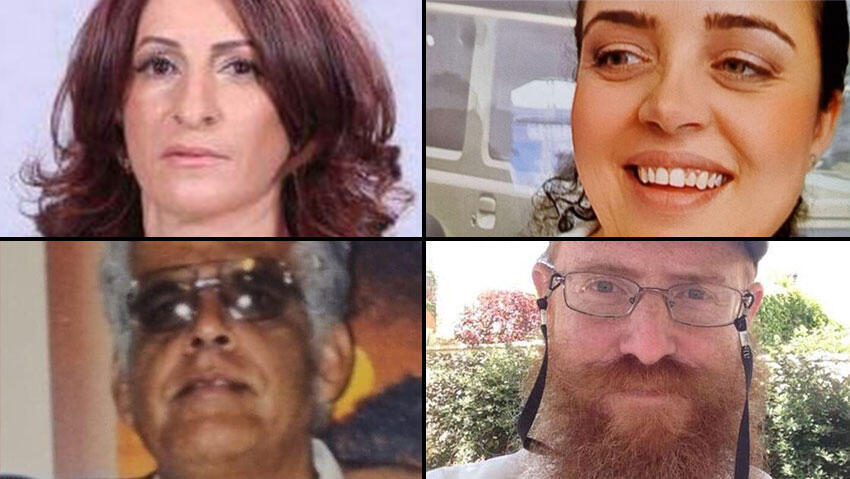Getting your Trinity Audio player ready...
Mohammad Abu al-Kian, the damned terrorist who earlier this week killed four innocent civilians in the southern city of Be’er Sheva, was an Israeli citizen and a Negev resident.
Although Mohammad Abu al-Kian was shot and killed at the scene, the atmosphere which enabled him to develop from a teacher into a murderous terrorist is still very much prevalent in the Arab sector in Israel.
To that end, we must work to change this atmosphere before the next attack occurs. But what is this atmosphere?
There are certain organizations which for years have been trying to bring attention to the rampant lawlessness in the Negev: Women who can not walk alone at night in Be'er Sheva, drivers who cannot drive on secluded roads, daily break-ins and thefts.
Every Israeli got caught up in it last year during the May war in Gaza - which was accompanied by rampant violence and clashes between Arab and Jews in mixed cities.
Another example is the tree planting protests in the Negev two months ago, which also escalated into violent riots and clashes.
5 View gallery
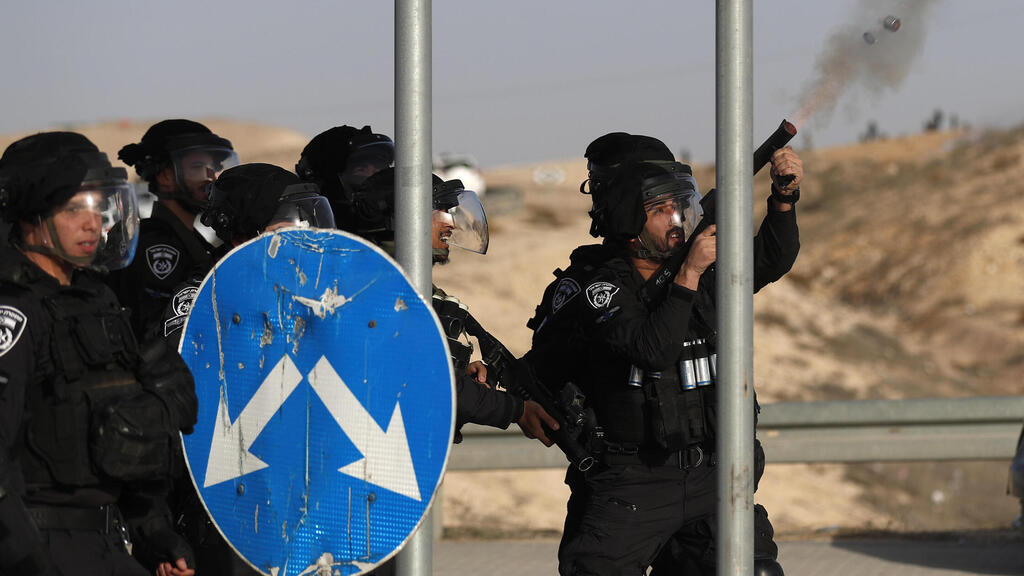

Israeli security forces use riot control measures in the Negev during violent land protests
(Photo: EPA)
Following Tuesday's killing spree, everyone's blood is boiling, and we need to use this anger to our advantage, to benefit Israel, its security and its citizens.
I, myself, don’t believe the generic clichés which politicians tend to spew after every terrorist attack. I, personally, am not convinced that "our security forces will act resolutely" or that "those responsible will be held accountable."
Politicians have been shouting the same hollow slogans since the First Intifada in the late 1980s. They have been used by Benjamin Netanyahu’s many many governments the same way Prime Minister Naftali Bennett has been using them during his tenure.
To be clear, my issue is not with Israel’s security forces - whose mandate is to implement the political echelon’s orders. My problem is the policies, which have never focused on the core problems.
When it comes to Palestinian terrorists, there is no clear and sufficient policy to implement after each attack.
If there was such a policy, all wannabe terrorists would know that an attack means their home would be demolished, their family would be deported, and they would spend the rest of their lives rotting in solitary confinement - on the off chance they survive their attack.
Instead, what we have are endless court rulings, which after two years allow one room in the terrorist's house to be razed. And the terrorists? They get sent to a security prison, which is basically one huge Palestinian commune, and receive a huge monthly stipend from the Palestinian Authority.
That's not how you prevent the next attack.
5 View gallery
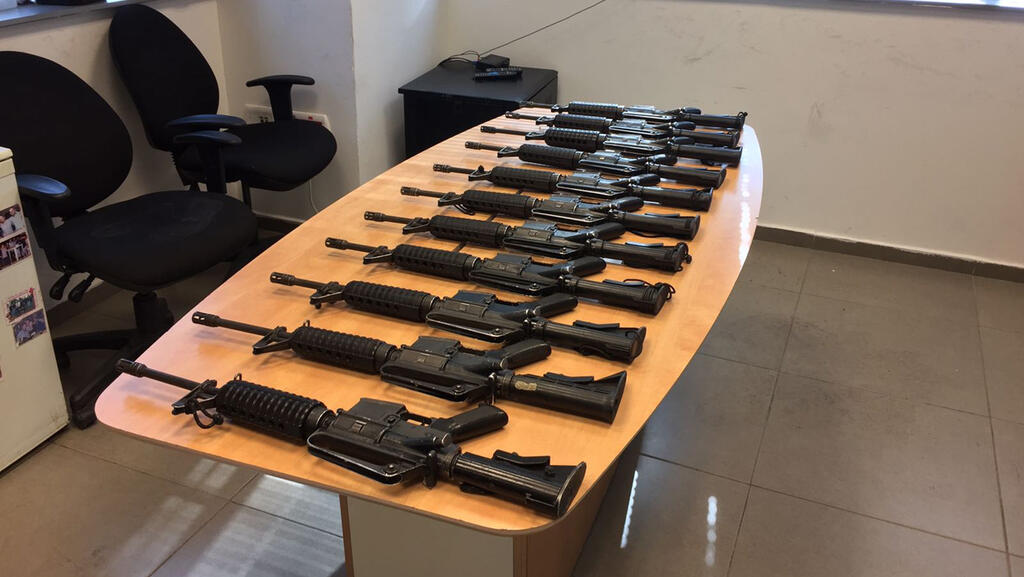

Police seize weapons from Bedouin gangs, stolen from IDF bases
(Photo: The Israel Police)
During the May riots, we were all forced to understand that the violence within the Israeli Arab communities is not solely their problem. The enormous amounts of weapons flowing through the Arab streets and their owners' trigger fingers are an explosive collar locked to our collective necks. Because these weapons could easily be used against innocent civilians, no matter in which city.
When the government opts to ignore the wild crops of cannabis in the Negev, the wholesale smuggling of drugs from Sinai, the vast and illegal polygamy, which includes smuggling of Palestinian women from West Bank and Gaza, and continued illegal construction of communities - it allows for Islamic radicals to grow under our nose.
This does not mean, God forbid, that all Bedouin are terrorists, nor does it mean that most of them are in favor of terrorism, but where there is no law and no justice, even an extremely small minority with murderous inclinations can thrive and execute such despicable acts.
5 View gallery
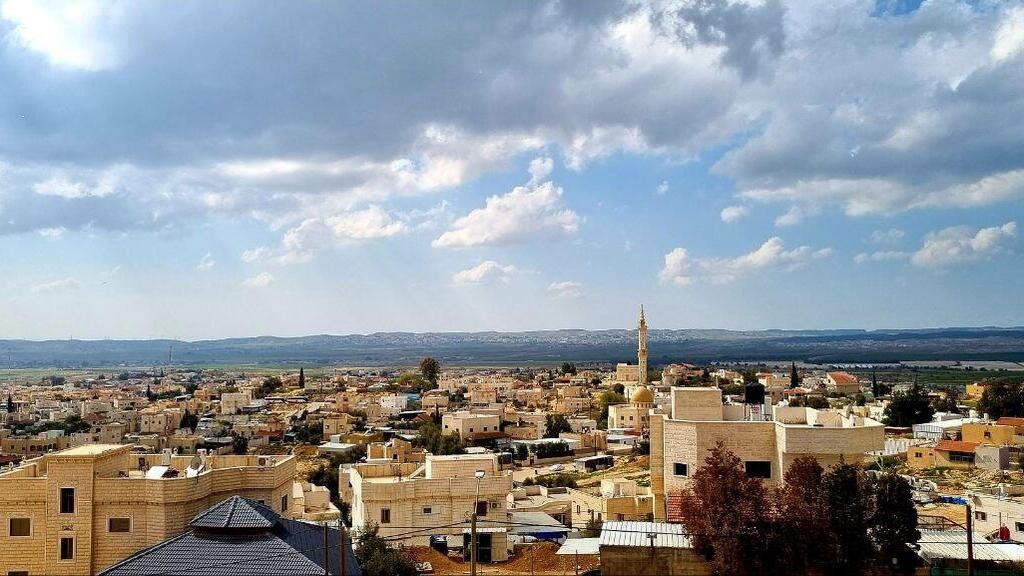

Bedouin town of Hura where terrorist who carried out attack in Be'er Sheva lived
(Photo: Roee Idan)
Managing a country requires the ability to seize opportunities. We suffered a fatal blow in Be'er Sheva, now we must understand how to leverage all the positive aftermath of that horrific event to our advantage.
Bennett would do well to understand that this attack is a red line, to seize the opportunity and start repairing the wounded Negev. This means demolishing all illegal Bedouin construction in the area, and taking a firm stance against any criminal acts perpetrated by the Arab sector in the south.
If nothing is done following this attack, we would know that when the next one comes, all our government would do is bark without biting.


